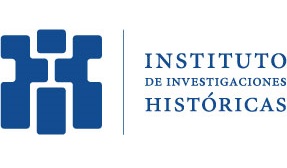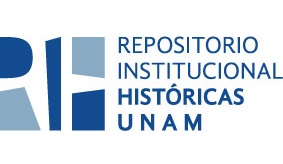Francisco de Santander: la dicotomía del poder, Cartagena y Santa Marta, 1606-1630
| dc.contributor | Ríos Saloma, Martín F. |
| dc.contributor.author | Montoya Muñoz, Sandra Cristina |
| dc.coverage.spatial | Colombia |
| dc.coverage.spatial | Nuevo Reino de Granada |
| dc.coverage.temporal | siglo XVII |
| dc.coverage.temporal | 1606-1630 |
| dc.date.accessioned | 19/03/2021 18:58 |
| dc.date.available | 19/03/2021 18:58 |
| dc.date.issued | 2019-5 |
| dc.identifier.uri | http://hdl.handle.net/20.500.12525/673 |
| dc.description.abstract | "En esta investigación se analizó la dicotomía de lo lícito e ilícito y cómo se trasgredieron las normas y las costumbres en la sociedad de Cartagena y Santa Marta, durante los años 1606 y 1630, enfocada desde el abuso del poder y el contrabando. Se usó la microhistoria y el estudio de caso como herramientas para entender los conflictos existentes en el poder central y local; y el funcionamiento y las desviaciones de la sociedad enmarcadas en una monarquía policéntrica. Este análisis fue posible gracias al uso y estudio de los juicios civiles como fuente de estudio, con lo cual se pudo reconstruir y entender con mayor profundidad la impartición de justicia y a su vez, permitió entender los conflictos presentes en el Nuevo Reino de Granada. Por lo tanto, se llegó a la conclusión que las tensiones que se crearon entre la administración central y la local, en parte se debieron al interés que hubo por el monopolio de actividades ilícitas, y expuso cómo algunos personajes hacían uso de sus jerarquías para acceder a grandes capitales y para obtener más poder, con lo que se libraban de grandes penas impuestas a sus delitos. Además, la lucha de los poderes afectó no solo a las redes de contrabando, también a los habitantes de las gobernaciones. Estas conductas permearon en esferas políticas y sociales, influenciando las decisiones de los mandatarios, en donde primó el bien particular sobre el bien común." |
| dc.description.abstract | "In this investigation, was analyzed the dichotomy between licit and illicit and how the norms and customs were transgressed in Cartagena and Santa Marta society, since the years 1606 and 1630, focused on the abuse of power and contraband. Microhistory and case study were used as tools to understand the existing conflicts in the central and local power; and the functioning and deviations of society in to a polycentric monarchy. This analysis was possible thanks to the use and study of civil trials as a source of study, it was possible to reconstruct and understand the imparting of justice and at the same time allowed to understand the conflicts present in the Nuevo Reino de Granada. Therefore, it was concluded that the tensions that were created between the central and local administration were due to the interest in the monopoly of illicit activities and exposed how some people used their hierarchies to access big capitals and they obtain more power, with them could escaped from punishment imposed on their crimes. In addition, power struggle affected not only the contraband networks, it also dearness the inhabitants of the governorates. These behaviors permeated the political and social spheres, it was influencing the decisions of the leaders, where the welfare in addition, power struggle affected not only the contraband networks, it also dearness the inhabitants of the governorates. These behaviors permeated the political and social spheres, it was influencing the decisions of the leaders, where the self-welfare prevailed over common." |
| dc.format | |
| dc.language.iso | spa |
| dc.publisher | Universidad Nacional Autónoma de México. Coordinación General de Estudios de Posgrado |
| dc.relation | Montoya Muñoz, Sandra Cristina "Francisco de Santander: la dicotomía del poder, Cartagena y Santa Marta, 1606-1630". Tesis de maestría. Universidad Nacional Autónoma de México. Programa de Posgrado en Historia . Disponible en Repositorio Institucional Históricas-UNAM http://hdl.handle.net/20.500.12525/673 |
| dc.rights.uri | http://creativecommons.org/licenses/by-nc-nd/4.0 |
| dc.subject.other | Historia - Diplomática |
| dc.subject.other | Regímenes políticos |
| dc.title | Francisco de Santander: la dicotomía del poder, Cartagena y Santa Marta, 1606-1630 |
| dc.type | masterThesis |
| dc.type | Tesis de maestría |
| dcterms.bibliographicCitation | Montoya Muñoz, Sandra Cristina "Francisco de Santander: la dicotomía del poder, Cartagena y Santa Marta, 1606-1630". Tesis de maestría. Universidad Nacional Autónoma de México. Programa de Posgrado en Historia . Disponible en Repositorio Institucional Históricas-UNAM http://hdl.handle.net/20.500.12525/673 |
| dcterms.provenance | Repositorio de la Dirección General de Bibliotecas y Servicios Digitales de Información, https://ru.dgb.unam.mx/ |
| dc.rights.holder | La titularidad de los derechos patrimoniales de la tesis le corresponde y la conserva el sustentante |
| dc.subject.keywords | contrabando |
| dc.subject.keywords | impartición de justicia |
| dc.subject.keywords | abuso de poder |
| dc.subject.keywords | lucha de poder |
| dc.subject.keywords | juicios de residencia |
| dc.subject.keywords | contraband |
| dc.subject.keywords | impartition of justice |
| dc.subject.keywords | power abuse |
| dc.subject.keywords | power struggle |
| dc.subject.keywords | residence trials |
| dc.audience | students |
| dc.audience | researchers |
| dc.audience | teachers |
| dc.description.grade | Maestría en Historia |
| dc.rights.access | openAccess |
| dc.rights.access | Acceso Abierto |
| dc.relation.alternativeidentifier | 784405 |
| dc.description.institution | Universidad Nacional Autónoma de México. Programa de Posgrado en Historia |
| dc.identifier.url | http://132.248.9.195/ptd2019/enero/0784405/Index.html |
| dc.type.version | publishedVersion |
Files in this item
| Files | Size | Format | View |
|---|---|---|---|
|
There are no files associated with this item. |
|||
This item appears in the following Collection(s)
Except where otherwise noted, this item's license is described as http://creativecommons.org/licenses/by-nc-nd/4.0



